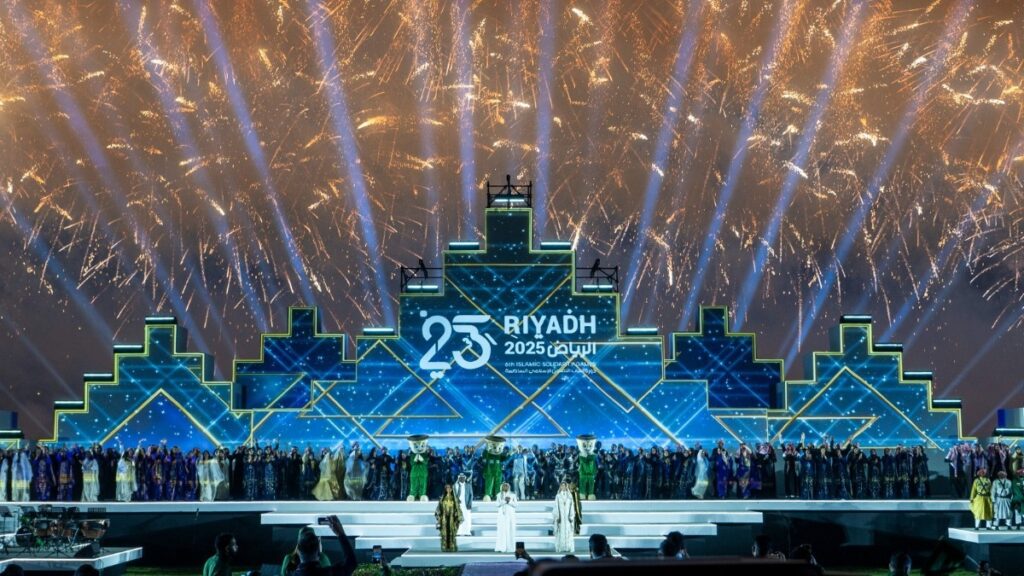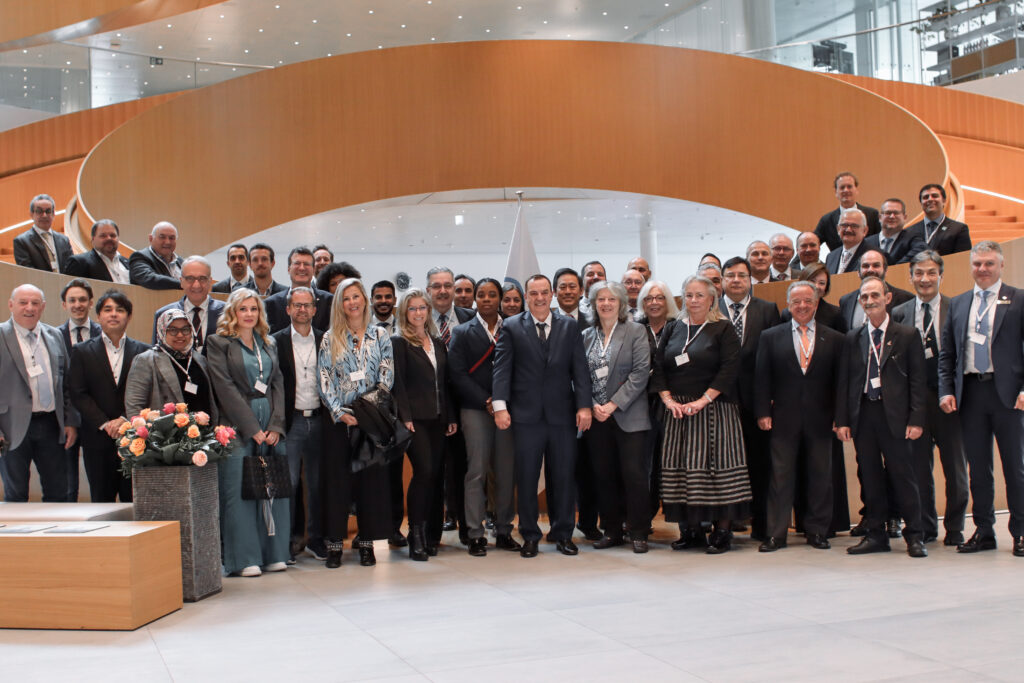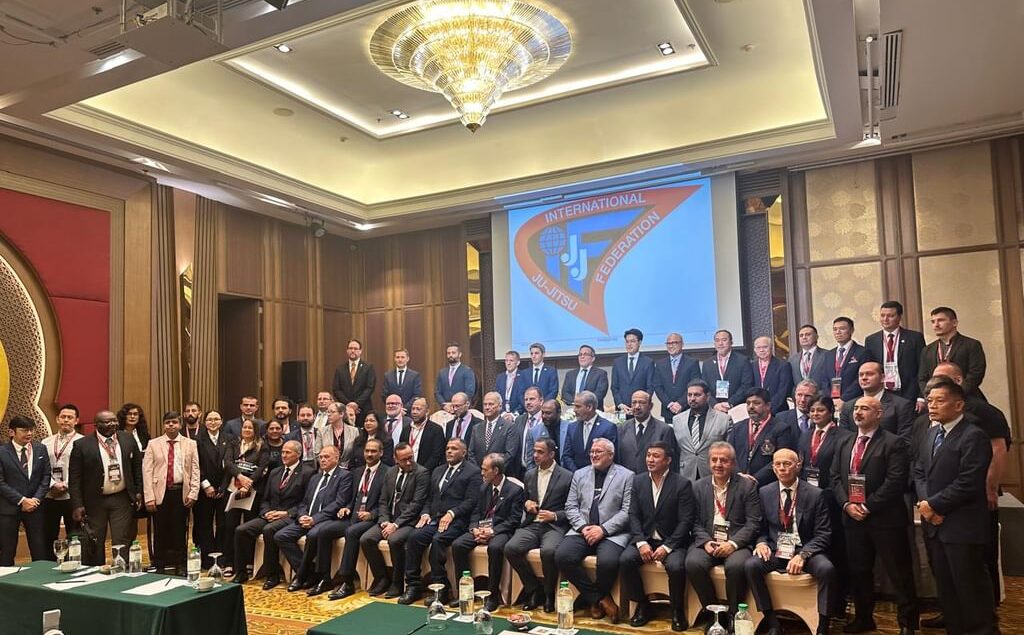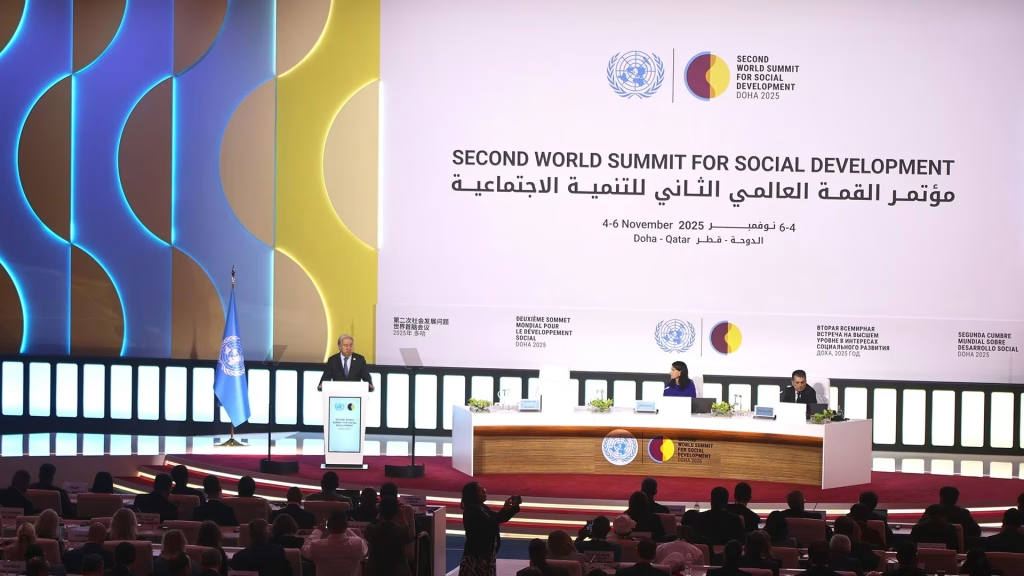On the International Day of Sport for Development and Peace (IDSDP), Iranian taekwondo athlete Ali Noghandoost, an Olympic Solidarity Refugee Athlete Scholarship-Holder hoping to qualify for the Olympic Games Tokyo 2020 with the Refugee Olympic Team, reflects on his journey from Iran to Europe and how sport has helped him to rebuild his life.
Ali was forced to flee his native country with his brothers and sister in 2015, leaving everything behind to run to Istanbul, Turkey, before embarking on a perilous journey in search of asylum in Europe. The most challenging part of his journey came in a three-and-a-half-hour boat ride from Turkey to Greece, where he realised that other refugees did not survive their own attempts to find safety.
Ali joined his first taekwondo club at eight years old, and the strength gained from his training helped him to survive the physical and mental demands of his journey. After a short stay in Austria, he’s now safe and settled in Croatia, where, at Jastreb, his new club in Zagreb, he continues to train with the aim of competing at the Olympic Games with the Refugee Olympic Team while teaching and mentoring young refugees and children.
Sport has helped Ali to rebuild his life, supporting him in learning new languages, building strong friendships in new cities, and creating a space for him to draw on his experience to help and inspire vulnerable young children facing a situation similar to his own. On the IDSDP, he spoke to the IOC about his gruelling journey from Iran to Europe, how he found the strength to keep looking forward in unimaginable circumstances, and the message he’d like to share with the world’s refugees.
WHAT ROLE HAS SPORT PLAYED ON YOUR JOURNEY AND HOW HAS IT HELPED YOU TO REBUILD YOUR LIFE?
“When I had to leave my family and my home in Iran, the first things I packed in my bag were my belt, my dobok, my shoes and my mitt for taekwondo. I took some documents that said I was a champion in Iran and in a national team, so I could prove I was a fighter and continue to train in any city I went to.
“I would search on the internet for a club to train with, but sometimes I couldn’t find one. When we were staying in a refugee camp in Graz, Austria, we were sleeping on the floor between 1,000 people in freezing cold conditions, but I was still preparing for the Austrian Championships and hoping to be a part of the national team. I found a spot to place my focus pad, and I would train there three times a day for an hour and a half each time. I came first in my category at the championships and won a gold medal.
“The physical strength from my taekwondo training meant I could run really fast in the moments where I needed to escape dangerous situations, too. We also had to travel by boat on the first part of our journey to Europe – from Turkey to Greece – and I had to row for three and a half hours, non-stop. I had to row, or my brothers and I would die. Taekwondo did not only help me physically; mentally, it stopped me from thinking about giving up and that we wouldn’t make it. I used this strength to survive.”
YOU TEACH TAEKWONDO TO CHILDREN AND YOUNG REFUGEES IN CROATIA. WHAT DO YOU THINK THE PRACTICE OF SPORT BRINGS TO THESE KIDS AND HOW DO YOU SUPPORT THEM AS A COACH AND MENTOR?
“I coach at Jastreb, and we have a project called New Life, which supports refugees like me. We help to give them another chance in life and, as a refugee myself, I can support them in adapting to their new life. I know how they’re feeling and how angry they might be with their situation. When you’re living in a refugee camp, it’s a really hard situation, but when you play sport, you can release any negative energy and feel free. It’s a space – a paradise – for them to be themselves.
“I talk to them a lot, because they need mental training, they need a coach. When I first came to Croatia, I had a mentor who really helped me. Wherever you are, the three most important things are to learn the language, learn the culture, and have a mentor who can help you to find your way and your talent. I’m trying to help the young refugees I coach to be a part of society. I want to see them grow, learn more and make new friends. As refugees, we arrive in a new culture and are put into a small box – we’re told who we are and who we should be – but I want them to know they can decide their lives for themselves.”
WHAT DO YOU THINK IS THE MOST IMPORTANT THING THAT SPORT CAN BRING TO VULNERABLE YOUNG PEOPLE?
“Friendship: children can find so many friends through sport. It doesn’t matter who you are, where you are from, what language you know – through sport you can make lifelong friends. When I came to Croatia, without even knowing the Croatian language, I found friends through taekwondo. It doesn’t matter if you kick your friend and he kicks you back; he’s with you for life.”
YOU ARE AN OLYMPIC SOLIDARITY REFUGEE ATHLETE SCHOLARSHIP-HOLDER. WHAT DOES THE WORD “SOLIDARITY” MEAN TO YOU?
“To me, solidarity means family. It means that, despite not having my real family here with me in Zagreb, I have the support of the IOC family in helping me to reach my dream of qualifying for the Olympic Games.
“When I received the scholarship in 2019, I felt really good. Before then, it seemed as though every door had closed on me. But I was praying, and I knew a door would open. It was my dream to go to the Olympic Games when I started taekwondo, and with the support of the IOC, I could really concentrate on training for Tokyo 2020 and start to believe in my dreams.”
THERE’S A FILM CREATED BY THE UN REFUGEE AGENCY (UNHCR) WHICH SHOWS THE JOURNEY OF A REFUGEE ATHLETE WHO LEAVES EVERYTHING BEHIND TO EVENTUALLY MAKE IT TO THE STARTING LINE IN THE OLYMPIC STADIUM. HOW DOES THIS FILM INSPIRE YOU AND DOES IT REMIND YOU OF YOUR OWN JOURNEY?
“That really is my story. It’s the first film I’ve watched which tells the story of me and my friends from Syria, Iraq and other countries around the world. It showed the journey of exactly what we have been through to get to where we are today.
“I travelled through the sea to make it to Europe, and I saw many people die in the water. I arrived in new countries, learned new languages; I became a student, a coach; and finally, I was given the opportunity to try to fulfil my dream of becoming a part of the Olympic Games. To see a refugee making it to the Olympic Stadium is amazing.”
WHAT MESSAGE DO YOU WANT TO SEND TO REFUGEES AROUND THE WORLD?
“I see myself as a winner in life, and I see all of the world’s refugees as winners. I believe in you and I believe in myself. I want to tell you not to worry about the future. Live in the moment. Learn from your past and use what you have learned to help you today.
“Don’t be ashamed of who you are, or of your people and where you come from. If you have survived your journey and your situation, there is a reason for you being here. You can inspire other people, whether it’s through sport or through education. Whatever your talent, use it to help others. That’s my message to the world’s refugees.”
The IOC has been helping refugees through sport since 1994 in partnership with UNHCR. In 2016, the first-ever IOC Refugee Olympic Team competed in Rio de Janeiro, and Olympic Solidarity is currently supporting the 55 refugee athlete scholarship-holders vying to be part of the Refugee Olympic Team at Tokyo 2020. The IOC will continue to help the refugee athletes who will not go to Tokyo, and to assist the members of the team after the Olympic Games. The Olympic Refuge Foundation is the next chapter in the IOC’s commitment to providing assistance to refugees, ensuring support 365 days a year across the globe.









